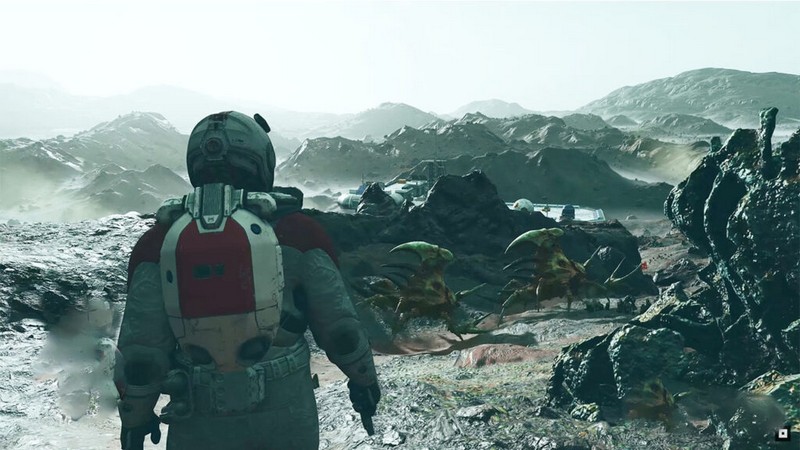Game theory is a mathematical field that studies the strategies used by decision makers in situations where the outcome depends on the choices of multiple parties. It has been applied to many areas of life, from economics and business to politics and war. In this article, we will discuss how game theory can be used in real-life contexts, such as everyday decisions and negotiations. We will focus on understanding the basics of game theory and analyze how it can be used to make better decisions. Additionally, we will also look at how game theory can be applied to our everyday lives.
Understand the Basics of Game Theory
By examining the underlying elements of strategic interaction, one can gain insights into how decisions are made in situations where resources are limited. Understanding the basics of game theory is important to understanding how people and organizations make decisions in competitive scenarios. Game theory relies on a set of mathematical models that attempt to explain interactions between players by considering their different strategies, potential outcomes, and incentives or rewards associated with each outcome. It also looks at cooperative behavior among participants as well as how they might react when there is an incentive for them to take advantage of another player’s disadvantage.
Game theory gives us insight into what strategies may be most beneficial for achieving desired outcomes under certain conditions. For example, strategic planning often involves looking at multiple possible scenarios and deciding which strategy will provide the best result given the available resources. It also helps us understand why people act in certain ways when faced with a dilemma or challenge that requires difficult decisions to be made quickly. By analyzing these types of situations using game theory, we can better understand why people make the choices they do and develop more effective solutions for our own decision-making processes in similar situations.
The use of game theory provides organizations with valuable tools for understanding complex social interactions and making more informed decisions about their own strategic plans. It helps us identify potential conflicts before they arise so that we can work towards cooperative behaviors instead of destructive ones. With its focus on incentives and rewards, it is a useful tool for predicting how different parties might act in any given situation, allowing organizations to develop solutions that maximize benefits while minimizing risks
Identify the Players and Their Objectives
The first step in applying game theory to a situation is to identify the participants and understand their respective goals. Through social dynamics, it can be determined who the players are and what they hope to gain from playing the game. This can be done through observation of group behavior or by directly asking the players involved. Furthermore, cooperative play should also be taken into consideration when determining an individual’s objectives within a game environment. It is important for each individual participant to have some understanding of how their decisions will affect other players as well as themselves.
Once all participants have been identified and their objectives have been understood, then one can begin to build a strategy that maximizes their own gains while minimizing losses from other players. This requires an understanding of how the various pieces fit together in order to create a winning situation for oneself. Additionally, this may involve understanding how certain rules or regulations might influence the outcome of the game for both oneself and other players involved. For example, if there is an incentive structure set up where rewards are given out based on performance, then strategies must be developed with this in mind in order to ensure maximum gains are achieved by all parties involved.
It is essential to consider how different strategies can affect outcomes when applying game theory in real life scenarios. As such, careful analysis of each player’s actions should take place before any decisions are made or strategies employed so that everyone involved has a clear understanding of what they stand to gain or lose depending on how they act within a particular situation. Only after taking these steps can one accurately apply game theory principles in real life scenarios successfully and efficiently
Analyze the Possible Outcomes
Careful consideration must be given to the potential consequences of each decision, in order to maximize gains while minimizing losses. Applying game theory to real life situations requires an analysis of all the possible outcomes associated with different play strategies. A strategy is a set of decisions that a player makes in order to achieve their goal; it can be thought of as the path they choose when presented with various options. In decision theory, the concept of expected utility is used to evaluate each option and determine which one offers the greatest “utility” or benefit for that player.
The expected utility of any particular outcome can depend on many factors – such as risk tolerance, resources available, and short-term versus long-term objectives – making it important for players to consider all scenarios before choosing their course of action. Additionally, game theory takes into account not just immediate results but also how future interactions may be affected by present decisions which can further complicate the process of selecting optimal moves.
In addition to evaluating potential outcomes for individual players, game theory also looks at how different choices affect other participants and how those impacts may ripple through subsequent rounds. This means that even if a particular move appears advantageous from one perspective, it could have unintended negative effects once other players adjust their own strategies based on what has occurred previously – thus necessitating an even more thorough assessment prior to making any final determination regarding appropriate actions.
Consider the Impact of Your Decisions
When selecting a course of action, it is essential to consider the potential ramifications of each choice on not only oneself but also other participants in order to make an informed decision that maximizes gains and minimizes losses. Applying game theory in this regard requires risk assessment and decision making skills, as well as an understanding of the consequences of one’s decisions. This analysis involves weighing the pros and cons of each potential move against any potential reward or penalty for each action taken. In doing so, one must identify all possible outcomes from their actions and use this information to select the best possible alternative.
The ability to evaluate risks associated with any given situation helps in making sound decisions when applying game theory. By assessing both short-term and long-term implications, better decisions can be made by avoiding taking chances with lower probabilities for success. Additionally, individuals should consider how their actions will impact others involved; this could be done through communication with those affected or through researching a particular issue beforehand. It is important to note that certain decisions may have positive impacts initially but could result in negative outcomes down the line if they are not properly thought out beforehand.
It is also important to keep in mind that no single decision will guarantee success; instead, successful application of game theory relies on being able to accurately assess risks and rewards before ultimately deciding which course of action should be taken. Therefore, it is critical for individuals using game theory in real life situations to take into account all possible outcomes prior to acting so as reduce uncertainty while maximizing gains over time.
Use Game Theory in Everyday Life
Evaluating the risks and rewards associated with various courses of action can be a useful tool for making decisions in everyday situations. Game theory provides a method for effectively analyzing these potential outcomes. It is based on the premise that players will take actions to maximize their rewards while minimizing their risks. This type of analysis can help individuals determine the best course of action to pursue, taking into consideration not only personal gain, but also any social implications associated with each option.
Game theory applies to many different scenarios, from business negotiations to relationships between nations. For example, in business negotiations, both parties may attempt to maximize their profits while limiting losses; or in international relations, countries may attempt to win diplomatic victories while minimizing political costs. In each case game theory can provide insight into how one party’s decision affects another’s decision-making process and therefore guide an appropriate risk assessment strategy.
In all decision-making processes it is important to consider not only what is best for oneself but also how one’s actions will affect others around them. Through game theory individuals are able to analyze potential outcomes from different perspectives and make more informed decisions as a result. By taking into account the risks and rewards of various courses of action as well as any social implications associated with them, game theory can be used to improve decision-making skills in everyday life situations.
Frequently Asked Questions
How can I find resources to learn more about game theory?
The study of game theory has become increasingly popular in recent years with the growth in online gaming. As such, there are a variety of resources available to those interested in learning more about this subject. Online tutorials and gaming strategies are two of the most common sources for understanding game theory. These resources provide an overview of the basic concepts, as well as a detailed analysis of different scenarios and strategies that can be employed during gameplay. Additionally, there have been numerous books written on game theory which offer additional insight into its application and use.
What are the key components of game theory?
Game Theory is a branch of mathematics that focuses on the analysis of strategic decision making. It has many applications, such as economics and politics. Its core components are strategic thinking, game models, zero-sum games, and cooperative strategies. Strategic thinking involves anticipating your opponent’s moves and trying to maximize one’s own benefits in the process. Game models simulate competitive scenarios that can help determine optimal strategies for players in various situations. Zero-sum games refer to situations where one player’s gain is equal to another’s loss; thus, any action taken by one party will be detrimental to the other’s outcome. Lastly, cooperative strategies involve finding a mutually beneficial solution through negotiation or compromise between two or more parties involved in a conflict.
Are there any useful tools to help me understand game theory?
Game theory is a set of tools used to analyze decision-making in situations where multiple parties are involved. These tools can be used to understand the potential outcomes of different strategies and help predict how people will act when presented with certain choices. Key components of game theory include role playing, decision making, and analysis of incentives. By using these techniques, one can gain insight into how rational players interact with each other in strategic settings and make decisions based on the expected value of their options. Understanding game theory can provide valuable insights for decision makers in a variety of contexts.
Are there any real-world examples of game theory in action?
Game theory is an analytical tool for exploring options and collaborative strategies in a wide range of real-world scenarios. Examples include negotiations, auctions, marketing campaigns, military strategy, economic competition and other everyday activities. In each case, game theory can be used to identify optimal solutions based on the actions of multiple parties in pursuit of their own interests. By exploring the interplay between strategic choices and preferences of different participants, game theory can often provide insight into what outcomes are achievable or potential pitfalls that could lead to suboptimal results.
Are there any potential risks associated with using game theory?
The potential risks associated with using game theory include complexity analysis and ethical implications. Due to its intricate nature, game theory can be difficult to comprehend, making it difficult for users to accurately identify and assess the outcomes of a particular strategy. Additionally, there are ethical concerns surrounding the application of game theory in real-life scenarios as it can lead to unintended consequences that may not be ethically acceptable. It is important for users to consider these implications before applying the theories in any given situation.
Conclusion
Game theory is a powerful tool for understanding decision-making and interactions between different agents. By analyzing the players, objectives, possible outcomes, and impact of decisions, game theory can be applied to make informed decisions in a number of real-life scenarios. It also helps to understand how different strategies can lead to different results in complex situations. Ultimately, game theory provides an effective way of evaluating choices and making decisions that are both rational and beneficial for all parties involved. By taking into account the various elements that affect decision-making, it enables users to make more informed choices that result in better outcomes for everyone.











